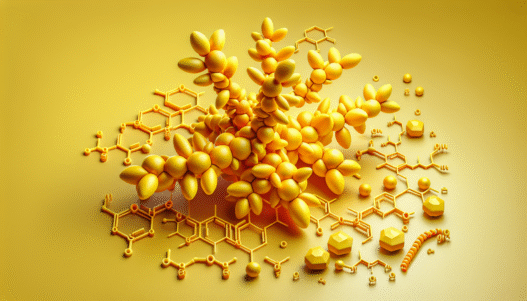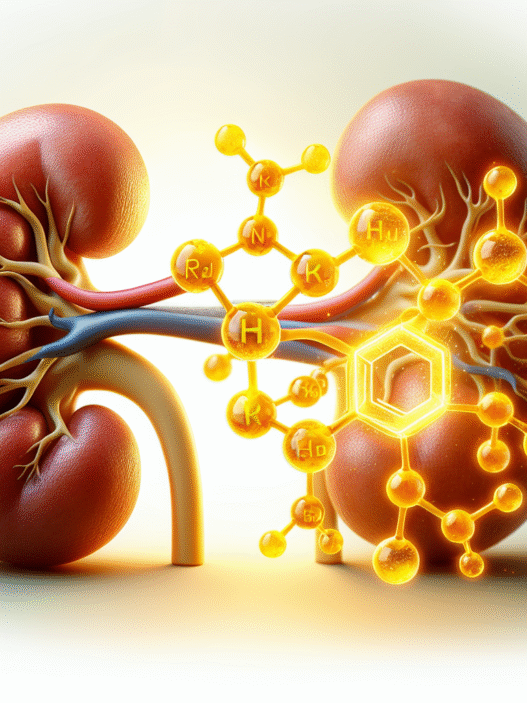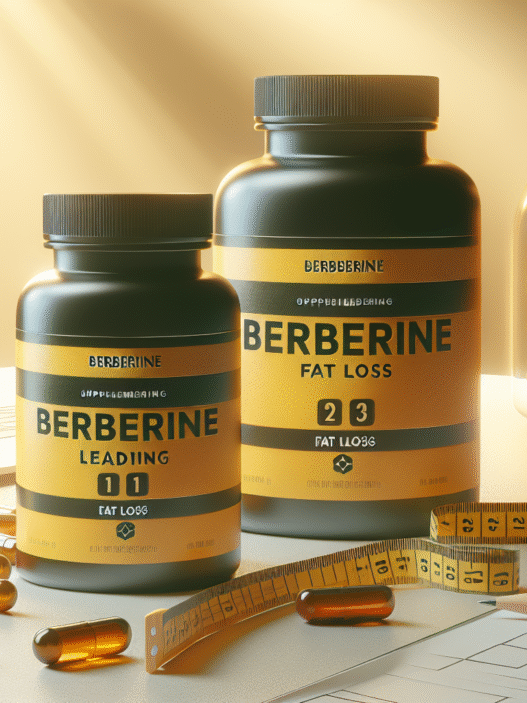Understanding Telomeres
Telomeres play a crucial role in cellular aging and overall health. This section provides insight into the nature of telomeres and the factors influencing their length.
Telomeres and Cellular Aging
Telomeres are repetitive DNA sequences located at the ends of chromosomes. They serve to protect the chromosomes from becoming frayed or tangled. Each time a cell divides, its telomeres shorten slightly. This shortening process continues until the telomeres become critically short, leading to cell death (Genome.gov).
As individuals age, telomeres progressively shorten. For instance, human liver tissues have been observed to lose about 55 base pairs of telomeric DNA annually. Rapidly renewing cells, such as those in the gastric mucosa, experience a similar rate of telomere shortening.
| Tissue Type | Annual Telomere Loss (base pairs) |
|---|---|
| Liver | 55 |
| Gastric Mucosa | Similar to liver |
Factors Influencing Telomere Length
Several lifestyle factors can influence telomere length. Unhealthy habits such as smoking, obesity, lack of physical activity, and poor dietary choices have been linked to accelerated telomere shortening. This premature shortening is associated with a greater risk of age-related diseases, including coronary heart disease, diabetes, cancer, and osteoporosis (NCBI).
Conversely, exercise has been shown to help preserve telomeres, thereby mitigating the effects of aging and reducing the risk of age-related conditions. Research indicates that athletes often exhibit elevated telomerase activity and experience slower telomere shortening compared to non-athletes.
A summary of the key factors influencing telomere length is presented below:
| Influence | Effect on Telomere Length |
|---|---|
| Smoking | Accelerates shortening |
| Obesity | Accelerates shortening |
| Lack of Exercise | Accelerates shortening |
| Unhealthy Diet | Accelerates shortening |
| Regular Exercise | Preserves telomere length |
Understanding these factors can guide individuals in making lifestyle choices that may promote healthier aging and longevity. For more information on how berberine and telomere length may interconnect, explore our detailed articles on berberine benefits and its various health aspects, including berberine and gut health and berberine and immune system.
Berberine’s Impact on Telomeres
Berberine has garnered attention for its potential effects on telomere length and cellular aging. Research indicates that berberine can both induce changes in telomere integrity and affect telomerase activity, providing insights into its role in promoting cellular health.
Berberine Treatment Effects
Studies have shown that berberine treatment can result in the erosion of telomeres, particularly observed in cancer cell lines such as HCT 116. In a study by Samad et al. (2021), berberine treatment induced significant telomere shortening MDPI. This process is particularly relevant for understanding how berberine might contribute to the regulation of cell longevity and senescence.
Additionally, berberine has been reported to enhance cell growth and proliferation by facilitating the transition of cells through various phases of the cell cycle. Specifically, it promotes entry from the G0 or G1 phase to the S/G2-M phase, which may alleviate replicative cellular senescence (Aging Cell).
| Effect | Observation |
|---|---|
| Telomere Erosion | Induced in colorectal cancer cells |
| Cell Cycle Promotion | Enhanced transition to S/G2-M phase |
Telomerase Activity Inhibition
Berberine’s impact on telomerase activity is another significant aspect of its effects on telomeres. Research indicates that berberine inhibits telomerase activity, which is crucial as telomerase plays a role in maintaining telomere length in certain cell types. The inhibition of telomerase can be particularly beneficial in the context of cancer therapy since many cancer cells exploit telomerase to extend their lifespan and proliferative capacity (MDPI).
This dual action of berberine—inducing telomere erosion and inhibiting telomerase activity—highlights its complex role in cellular aging processes. The implications of these effects extend beyond cancer treatment, suggesting potential applications in the broader context of aging and longevity.
| Action | Effect |
|---|---|
| Telomerase Inhibition | Reduced maintenance of telomere length |
| Telomere Shortening | Linked to cellular aging |
Berberine’s unique properties make it a compound of interest for those exploring berberine and longevity and its broader implications on health and aging. Further investigation into its mechanisms and long-term effects is crucial for understanding its potential roles in functional medicine and holistic wellness.
Scientific Studies on Berberine
Study by Samad et al. (2021)
A significant study conducted by Samad et al. in 2021 explored the effects of berberine on gene expression levels, particularly their influence on cellular mechanisms related to telomere biology. The researchers found that berberine treatment impacted the RNA levels of various genes crucial for cellular aging and telomere maintenance, including CCDN1, CDK4, TERT, and TERC (MDPI).
The findings from this study suggest that berberine may play a role in modulating processes that influence telomere length, potentially providing insights into anti-aging benefits associated with its use. Below is a summary of the key gene expression changes observed in the study:
| Gene | Function | Change in Expression |
|---|---|---|
| CCDN1 | Cell cycle regulation | Increased |
| CDK4 | Cell cycle progression | Increased |
| TERT | Telomerase activity | Increased |
| TERC | Telomerase RNA component | Increased |
This alteration in gene expression positions berberine as a potential candidate for further research into its role in cellular aging and longevity.
Effects on Gene Expression Levels
The influence of berberine extends beyond merely affecting telomere length; it also involves intricate pathways that may influence longevity and the aging process. The study emphasized that the upregulation of genes associated with cell cycle control and telomere restoration could indicate anti-aging properties (Aging Cell).
Furthermore, berberine treatment in laboratory settings suggested effects on senescence and cell growth arrest, highlighting its potential utility in anti-cancer applications. Specifically, berberine has shown evidence of inducing cell senescence in cancer cells with minimal effects on normal cells, thus backing its position in health and wellness discussions focused on aging and cellular health (PubMed Central).
For those interested in further exploring the health benefits of berberine, including its applications in metabolic health, cardiovascular benefits, and digestion, consider our detailed articles on berberine benefits and berberine supplements.
Health Benefits of Berberine
Berberine is gaining attention for its various health advantages, particularly in metabolic regulation and heart health. This section explores two key areas where berberine has shown effectiveness: metabolic and weight effects, and its influence on cholesterol and heart health.
Metabolic and Weight Effects
Berberine can play a significant role in weight management. Research indicates that berberine may contribute to substantial weight loss when taken as a supplement. In a 12-week study involving individuals with obesity, participants who consumed 500 milligrams (mg) of berberine three times daily experienced an average weight loss of approximately 5 pounds and a 3.6% reduction in body fat.
| Study Duration | Dosage of Berberine | Average Weight Loss | Body Fat Reduction |
|---|---|---|---|
| 12 weeks | 500 mg, three times daily | 5 pounds | 3.6% |
In addition to weight loss, berberine has been found to help lower blood sugar levels. A study involving 116 individuals with type 2 diabetes reported that taking 1 gram of berberine each day led to a 20% reduction in fasting blood sugar and a 12% decrease in hemoglobin A1c (HbA1c) levels (Healthline). Such effects can further support metabolic health and weight maintenance.
Cholesterol and Heart Health
Berberine also exhibits beneficial effects on cardiovascular health. It has been shown to lower cholesterol and triglyceride levels while increasing HDL (good) cholesterol. This balance is crucial as it may reduce the long-term risk of heart disease. Additionally, berberine impacts apolipoprotein B, a significant risk factor for heart conditions (Healthline).
| Lipid Component | Effect of Berberine |
|---|---|
| Total Cholesterol | Decreases |
| Triglycerides | Decreases |
| HDL (Good Cholesterol) | Increases |
| Apolipoprotein B | Decreases |
The potential of berberine to improve cardiovascular health alongside its effects on weight management and metabolic regulation positions it as a valuable supplement for holistic wellness. For those interested in exploring berberine’s full range of benefits, including its impact on telomere length, consider reading about berberine and telomere length. For further insights into berberine supplements and their applications, check out berberine supplements.
Lifestyle Factors and Telomere Length
Lifestyle factors play a significant role in determining telomere length, which is crucial for cellular health and longevity. Two key components influencing telomere integrity are diet and exercise.
Dietary Influence on Telomeres
Dietary choices can have a profound impact on telomere length. Increased intake of fiber and antioxidants, coupled with reduced protein consumption, is associated with positive effects on telomere health. Studies indicate that:
- Omega-3 fatty acids are linked to a slower rate of telomere shortening.
- Antioxidants such as vitamin E, vitamin C, and beta-carotene are connected to longer telomeres and a lower risk of specific diseases like breast cancer.
| Nutrient/Component | Effect on Telomere Length |
|---|---|
| Omega-3 Fatty Acids | Reduces telomere shortening |
| Vitamin E | Associated with longer telomeres |
| Vitamin C | Supports telomere length |
| Beta-Carotene | Linked to reduced disease risk |
For more insights on the health benefits of specific nutrients, check our berberine benefits.
Adopting a diet rich in these components may have long-term benefits for cellular aging. Managing dietary habits can be a proactive way to influence overall health and longevity.
Role of Exercise in Telomere Maintenance
Regular physical activity is a powerful tool for maintaining telomere length. Research demonstrates that exercise can help preserve telomeres, slow down the aging process, and reduce the risk of age-related diseases. Key points regarding exercise’s impact on telomeres include:
- Athletes tend to exhibit increased telomerase activity, which is crucial for telomere maintenance, compared to non-athletes.
- Aerobic endurance and high-intensity interval training (HIIT) are particularly beneficial for protecting telomeres from shortening.
| Type of Exercise | Impact on Telomeres |
|---|---|
| Aerobic Exercise | Preserves telomere length |
| High-Intensity Interval Training (HIIT) | Reduces telomere shortening |
Managing and reducing stress, engaging in regular exercise, and consuming foods that support telomere health are vital practices. For tips on how to improve your approach to telomere health, explore our articles on berberine and longevity and berberine anti-aging properties.
Natural Ingredients and Telomere Preservation
Telomere preservation is influenced by various factors, including natural ingredients that support cellular health. This section will explore the role of antioxidants and the impact of stress and sleep on telomeres.
Antioxidants and Telomere Length
Antioxidants play a significant role in supporting telomere length and overall longevity. Research indicates that individuals with higher levels of antioxidants tend to have longer telomeres. Some key antioxidants include Vitamin C, Vitamin E, and selenium, often found in berries (Ornish). These nutrients help combat oxidative stress, which can contribute to cellular aging.
Incorporating antioxidant-rich foods into one’s diet may bolster telomere health. Alongside berries, flaxseed, a source of omega-3 fatty acids, has also been shown to prevent inflammation and preserve telomeres. Studies reveal that higher levels of omega-3s correlate with less telomere decline over time (Ornish).
| Antioxidant Source | High Antioxidant Content | Effect on Telomeres |
|---|---|---|
| Berries | Vitamin C, E, Selenium | Promotes longevity |
| Flaxseed | Omega-3 Fatty Acids | Reduces telomere shortening |
Impact of Stress and Sleep on Telomeres
Chronic stress and inadequate sleep are known to negatively influence telomere length. Stress can trigger inflammatory responses and oxidative damage, leading to accelerated telomere shortening. Conversely, maintaining a healthy lifestyle that includes stress management techniques can have a protective effect on telomeres.
Quality sleep is equally important for cellular repair and maintenance. Research suggests that individuals who experience consistent restful sleep tend to have healthier telomeres compared to those with sleep disturbances. Prioritizing stress reduction methods and ensuring proper sleep hygiene can support telomere health, thereby contributing to overall well-being.
Practical strategies for managing stress may include mindfulness meditation, yoga, or engaging in hobbies. Likewise, establishing a regular sleep schedule and creating a tranquil sleeping environment can promote restorative sleep.
By incorporating antioxidants into one’s diet and managing stress and sleep health, individuals can take steps toward preserving their telomere length. Awareness of these natural ingredients and lifestyle factors may enhance one’s journey toward longevity and wellness. For more information on the effects of berberine on telomere length, explore our article on berberine and longevity.





















